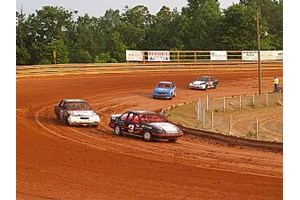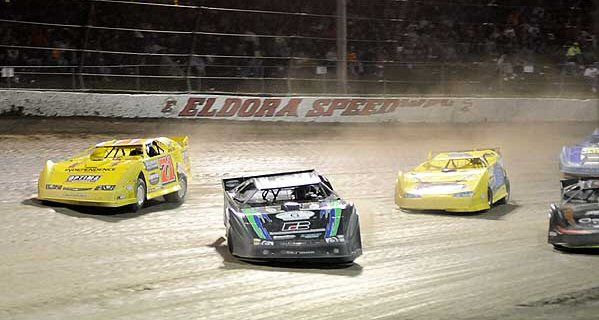How Assumptions Can Create Mis-Information
Last month Washington DC was in its usual fight over money, budgets and bills when it finally agreed on several little deals to create what’s being called on the street as the Fiscal Cliff Bill. Along with being a sports fan, an author and teacher, I’m also a political junkie. And one thing that irritates me more than the stupidity in Washington, is the B.S. and spin that the average American buys into at the hands of sloppy reporting and sensationalize journalism.
When that mis-information touches on something I care about, I tend to speak up. Such is the case of a recent story published in the Washington Post this week. An opinion piece, which I guess means the opinionated author doesn’t need to check their facts before publication. The article entitled “From NASCAR to rum, the 10 weirdest parts of the ‘fiscal cliff’ bill” was posted by Brad Plumer on January 2, 2013.
In this article Mr. Plumer makes the following statement:
4. Help NASCAR build racetracks
The so-called NASCAR loophole, in place since 2004, allows anyone who builds a racetrack to receive a small tax benefit through accelerated depreciation. This tax break cost roughly $43 million the past two years and will get extended for another year. Sounds tawdry, right? And yet, supporters claim the break is necessary so that NASCAR can compete on a level playing field with other theme parks. Looks like they got their wish.
Key points here – “so-called Nascar loophole”, “since 2004”, “43 million the past two years” which means 21.5 million for a single year. Compared to other sports or entertainment breaks; that’s really pretty small. I believe words have energy and power. They can inspire or inflame. When a reporter uses a word like “loophole” it gives the impression that someone has discovered a technicality to get through and take advantage of the people. This IS NOT a loophole. It is a policy designed to do exactly what it’s doing; giving racetrack owners a tax break. It’s not giving them taxpayer money that has already been collected from you and me. It’s allowing them to keep a little more of their own money as long as it’s used for a venue that benefits its community.
But let’s continue.
The “claim” Mr. Plumer is referring to was reported by Suzy Khimm last year in “Tax loophole or policy fix? It can be in the eye of the beholder” on June 8th, 2012; also in the Washington Post. In which she states:
“..the so-called NASCAR loophole, which gives racetrack owners a tax break by accelerating the depreciation of their tracks. Seems like a clear case of lobbying run amok. But supporters like Rep. Mike Thompson (D-Ca.) believe that provision–which was first introduced in 2004–corrects part of the tax code that “treats one theme park differently from other theme parks,” as the California Democrat told a House Ways and Means subcommittee the morning.”
Key points here, notice again the loophole word, plus “gives racetrack owners”, not Nascar.
Both articles point out that this Racetrack tax credit has been around for a while, it’s not something new. It actually expired in 2011 and due to the fight between Congress and the White House over middle-class tax extensions, these business tax breaks fell by the wayside and weren’t renewed. Until now. Some of these tax breaks have been around since 1981 and are so ingrained in the business model of Congress that they’re not likely to go away.
But there’s some issues with the mis-information being reported. And shame on Ms. Khimm and Mr. Plumer for their spin and inaccurate reporting only to create an inflammatory story.
First the 10-second or 140 character tag line to pull you into the article points a finger directly at Nascar and some un-named Nascar lobby. This isn’t..let me say that again this IS NOT a Nascar tax break. This “loop hole’ affects all race tracks around the country and that includes the small Mom and Pop tracks that support local communities in the same manner that your local baseball or soccer field does.
This mis-information was repeated over and over again by a Twitter user @StateTaxNews, who continually mentioned that “Nascar must have a great lobby in Washington” in an obvious attempt to sensationalize a story. Every interest group in America has a lobby who walks into Washington and tries to level the playing field for its industry. But Nascar isn’t an industry, it’s a corporation owned primarily by a single family. The industry is motor sports, or race tracks and they come in many shapes, sizes, and uses same as your local baseball field is used for different purposes. So come on critics; look at the real picture and stop trying to inflame tempers simply to sell your spin and mis-information. Do some actual reporting and start telling the real story!
Here in Virginia alone, this tax break affects 53 race tracks and only 1 of those, is a Nascar track. It’s seriously unfair for these reporters to blame a multi-billion dollar corporation for a tax break that largely benefits small businesses and individuals. Local dirt tracks, paved tracks, or indoor race venues are also helped by this tax break. You can find a list of local tracks in your area through the North American Motorsports Page. Do a quick search and see how many small businesses around you may be depending on this tax break.
Placing the “Nascar” label on the tax-break is not only inflammatory, it also does a large disservice to the many smaller tracks that use this option and need it!
While there are many venues operated by the International Speedway Corporation, which is basically the France family (for non-Nascar fans; the France family IS Nascar), there are also other owners on that list of Nascar tracks who are affected by this break. Some big, some medium sized and some small. But remember these tracks are certainly NOT the only race tracks in America.
“Race track” refers to any type of motorsport race track. Which includes motor bikes, ATVs, snow mobiles, every variety of car and more . Even demolition derby venues can fall in this category.
Additionally the tax-break provides assistance for building tracks, as pointed out by Mr. Plumer. He also explains that this tax break has been in effect since 2004. But when you take a look at the list of tracks that Nascar races on, in Truck, Nationwide and Cup series, most of these tracks have been around for a long time and were built before 2004.
In fact there’s only 1 track, that’s ONE track on the entire list that was built after 2004. That would be Iowa, which isn’t owned by the France family. Rather it’s the product of the other big name in Nascar track builders – Bruton Smith. The U.S. Motorsport Entertainment Corporation owns and operates the Iowa Speedway and it was built in 2006. For Nascar fans, it’s the track that Rusty Wallace helped design and it’s the only track in the Nascar venues which could take advantage of this building tax break.
To be clear, here’s the list of Nascar venues used in 2012.
| Nascar Track Ownership Data | |||
| Date Opened | Track | Owner | Key Personnel |
| 1960 | Atlanta Motor Speedway | Speedway Motorsports, Inc | Speedway Motorsports, Inc. Bruton Smith, founder and CEO Marcus G. Smith, President |
| 1961 | Bristol Motor Speedway | Speedway Motorsports Inc. | |
| 1997 | Auto Club Speedway – Fontana | International Speedway Corporation | France Family |
| 1960 | Charlotte Motor Speedway | Speedway Motorsports | |
| 2001 | Chicagoland Speedway | International Speedway Corporation | |
| 1950 | Darlington Raceway | International Speedway Corporation | |
| 1959 | Daytona International Speedway | International Speedway Corporation | Formerly Dover Downs Entertainment |
| 1969 | Dover International Speedway | Dover Motorsports Inc. | |
| 1995 | Homestead-Miami Speedway | International Speedway Corporation | Subsidiary of Hulman and Co. |
| 1909 | Indianapolis Motor Speedway | Indianapolis Motor Speedway Corp | |
| 2006 | Iowa Speedway | U.S. Motorsport Entertainment Corp | |
| 2001 | Kansas Speedway | International Speedway Corporation | |
| 2000 | Kentucky Speedway | Speedway Motorsports | |
| 1971 | Las Vegas Motor Speedway | Speedway Motorsports | |
| 1947 | Martinsville Speedway | International Speedway Corporation | |
| 1968 | Michigan International Speedway | International Speedway Corporation | |
| 1990 | New Hampshire Motor Speedway | Speedway Motorsports | Mattco, Inc. |
| 1964 | Phenoix International Raceway | International Speedway Corporation | |
| 1971 | Pocono Raceway | Mattco Inc. | |
| 1955 | Road America – Wisconsin | Road America, Inc. | Road America, Inc. |
| 1946 | Richmond International Raceway | International Speedway Corporation | |
| 1965 | Rockingham Speedway | Andy Hillenburg | |
| 1968 | Sonoma Raceway | Speedway Motorsports | |
| 1969 | Talladega Superspeedway | International Speedway Corporation | |
| 1996 | Texas Motor Speedway | Speedway Motorsports Inc. | |
| 1956 | Watkins Glen International | International Speedway Corporation | |
In full disclosure the tax-break does help with maintenance and up keep. But here’s another thing missing from these articles. These tracks are not exclusively operated for Nascar races. They don’t generate revenue once a year or for a single event and hope it carries them through to next year. They operate year round, provide employment for hundreds or thousands of individuals and bring much needed dollars into these areas they reside in for other businesses, such as lodging, restaurants, stores and more. Not to mention the hundred or so vendors that show up at the venue to sell their products, be it t-shirts, race memorabilia, hot dogs, french fries, ice or a variety of other things.
Many of these tracks also host other much smaller races during the year. Our local track, Richmond International Raceway hosts a number of events at the Raceway Complex throughout the entire year that have nothing to do with racing or Nascar at all. So while Richmond hosts one of the premier races for the Nascar season (some would say two races), the complex benefits our local community all year long.
Here in the off season many Nascar fans look for some type of racing to enjoy. And through their discovery, smaller racing venues get a boost during this time of year that hopefully gets new fans coming back again. One such track is Eldora Speedway in Ohio. A small dirt track that was happily serving it’s community and the racing industry of late model and sprint cars, midgets and more. NASCAR driver Tony Stewart purchased the speedway in late 2004 from Earl Baltes, who built the speedway from the ground up in 1954. Since then the track has been updated, upgraded and thanks to Stewart’s business sense and the expertise of promoter Larry Kemp, who Stewart hired to head the day-to-day operations, the track has become a success.
I thought creating a successful business is what American business is all about? But to read the inflammatory quotes and stories of financial reporters, people who have probably never been to any kind of race in their life; being successful in motorsports is a bad thing. Or at the very least you must be left to your own devices while other industries get tax breaks, tax credits or tax dollars to stay afloat. Can we say Wall Street once more?
There isn’t a large business in this country that doesn’t have a tax break. In the ’80s Virginia tried to entice the then Mobil Corporation to move its headquarters out of New York here to the Old Dominion. To sweeten the deal, this multi-Billion dollar oil company was given several tax breaks to come to Virginia. And they did. So it’s ok for big business to get a tax break, but not ok for small businesses?
Now let’s make some additional clarifications here. The NFL, NBA, MLB and even NHL all have tax breaks for their individual industries. But unlike race venues, these major league sports teams also receive tax dollars to build and maintain their stadiums. There’s a big difference between a tax break and receiving tax dollars that come out of your pocket and mine.
Amusement parks such as our local Richmond Universal’s Kings Dominion which is a sister park to Charlotte’s Universal’s Carowinds also receive tax dollars and tax breaks to build and maintain their parks. Do you think Disney builds and maintains its parks all on its own? Seriously?
So when you’re sitting at home getting angry because a 10 second sound bite mentioned another industry that’s getting a tax break while your hard earned cash is getting smaller; don’t blame the latest business name being used to inflame your emotions. Instead, use the Library of Alexandria that you have at your finger tips and do a little research to find out what these “reporters” aren’t telling you and what they’re trying very hard to keep you from looking at.
Behind every inflammatory story is a real story that someone doesn’t want you to see. Something they’re trying to advert your attention from. What else is in that fiscal cliff bill that these “financial” people don’t want you to look at? Could there be another loophole for Big Banks in there as well?
In today’s world, the integrity of the news media in all its forms has been lost. Sensationalism, misinformation, redirection is what sells. If you don’t take control of the information you receive and research it, even just a little, you could be led down a path of ignorance and not even realize it until it’s too late and you’re lost in the darkness without a road map to get back to reality.
Be a smart American and don’t be afraid of doing a simple Google search on a story before you get angry about it. Don’t simply hit the “share” button or re-tweet the latest news blurb from some Tax guy who probably has no idea what the real story is behind the headline!
© 2013. Evilwordsmith.com. All Rights Reserved. Springwolf D.D., Ph.D.




